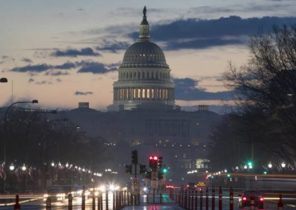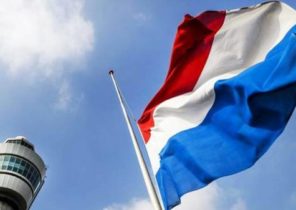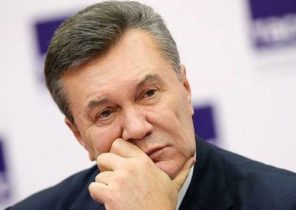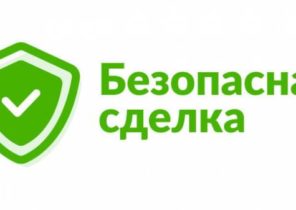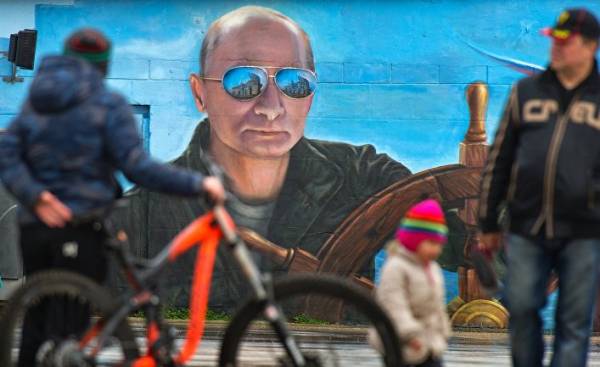
Three years ago, March 1, 2014, after treatment of the self-proclaimed head of the Council of Ministers of Crimea Sergey Aksenov to the Russian President, both chambers of the state Duma of the Russian Federation on request of Vladimir Putin authorized the use of Russian troops on Ukrainian territory, in particular in the Crimea. At that time on the Peninsula was Russian soldiers who captured main administrative buildings of the ARC, and three weeks later, Moscow officially declared Crimea part of the Russian Federation. Only for the third anniversary of the Anschluss the Crimea issue, though unexpected, but finally returned to an international level of discussion.
Robbery in especially large sizes
The annexation of Crimea has become the most serious violation of international law since the cold war. In contrast to the frozen conflicts in Georgia and Moldova, the Crimea was not only captured by the Russian troops, and formally incorporated in the Russian Federation. It was not just a violation of all existing rules and norms of behavior of the countries of the civilized world — it looked as openly spitting in the direction of the international community. Before Russia did so only Iraq seized Kuwait and politisize for is the overthrow of the regime of Saddam Hussein, thousands of lives, decades of war, impoverishment and devastation.
Russia is using its veto in the UN security Council and the weakness of the West for three years, continues the occupation of the Ukrainian Peninsula. Sanctions by the US and the EU is not particularly concerned about the Kremlin, the content of the Peninsula is not a cheap pleasure, but also to spend annually 3.5 billion dollars. USA Russian government can afford to satisfy their lust for Imperial grandeur.
Although, a hangover from the crimes they have committed many Russians already taking place. If in 2015, for the data of the Levada Center, 70% of Russians supported the annexation of the Crimea, in 2016 — 62, the last polls published on March 1, 2017, only 43% of Russians are proud of the annexation of the Ukrainian Peninsula. It doesn’t compare with the pride of victory over Nazi Germany, which still have 83% of the population of the Russian Federation. The evidence of the criminal nature of the occupation of Crimea, as well as continuing problems with which we have to deal with Moscow for the sustenance of the Peninsula, will only reinforce these trends.
To the outside world, the question of the Crimea in the first few years were purely formal in nature. Yes, a violation of international law, Yes, sanctions, Yes, not particularly, they affect Russia, but not to fight with a nuclear power over a Peninsula, which Kiev has never tried to make my…
Moreover, Kyiv was not especially and was actively looking for ways to resume sovereignty over the lost territory. In fact, the Peninsula was surrendered without firing a shot, until the fall of 2016 no foreign policy steps Ukraine has taken in order to begin the diplomatic game to return to the Crimea — or at least the inclusion of the issue in the agenda of international negotiations. During the meetings in the Geneva format in the spring of 2014, nor in the channel meetings, especially in the Minsk process, the Crimea was not included as a question for discussion.
Ukraine has not offered a draft resolution on punishing Russia for the annexation of the Crimea on the UN security Council and not even tried to gather around this project, the coalition of allies. Well, that although the UN General Assembly — though not without difficulty — for three years has adopted several resolutions in condemnation of Russia’s actions in Crimea, including violations of human rights. The latter clearly provides an additional argument to the Ukrainian diplomats and facilitates the work of finding allies in the international arena. Another thing is that to comply with the requirements of these documents Moscow does not intend.
“In international terms, Russia has failed to achieve recognition, legitimization of the annexation of Crimea. Russia has failed to achieve the lifting of sanctions. They remain in connection with the annexation,” — said in comments “Apostrophe” the diplomat, former Deputy Minister of foreign Affairs of Ukraine Volodymyr Khandogiy.
In terms of legitimizing the annexation of the achievements of Russia can be observed only in the domestic arena, the Chairman of the Board of the Fund “Maidan foreign Affairs” Bohdan Yaremenko. And even then, Russians “begin to understand that there is a price and it suits them”. “Out of dialogue with the dozen countries which in 2014 did not support the Ukraine during the voting in Genassablee the UN on the issue of support for the territorial integrity, no development there. Moreover, the sanctions evolve. In the past year, at least in part occurred delegitimization of the Crimea the Russian state Duma, deputies of which, elected from Crimea, not recognized the civilized world”, — said the diplomat in a conversation with our publication.
President Petro Poroshenko and his subordinates during the first two years basically was engaged in a rhetorical exercise on the question of the Crimea. “The entire civilized world knows that Crimea is Ukraine. We continue our struggle” — not once said Poroshenko. But the real action for the implementation of this slogan, like many others, for a long time was not observed.
New trends
Nevertheless, changes in the discourse of discussing the settlement of the Ukrainian-Russian conflict in General and Crimea in particular in the international arena has already begun. Well-known article of the Ukrainian oligarch Victor Pinchuk, has attracted attention both domestically and abroad, to the question, what is the future of the occupied Peninsula. Another peace initiative of the Chairman of the Board of ICPS Vasily Filipchuk is provided for the separation of Crimea and Sevastopol and use the model of a peaceful settlement of the conflict in Northern Ireland for the resumption of Ukrainian sovereignty over the Peninsula. The publication drew attention to the need for public debate about what strategy of Ukraine to return Crimea and is there a strategy at all.
In this context, I remembered the idea of the Patriarch of American diplomacy Henry Kissinger, the people’s Deputy Anton Gerashchenko and other Ukrainian and foreign politicians and experts on the issue of Crimea. Finally, last week, the media in the United States, then in Ukraine blew up the news about the peacekeeping initiatives of the people’s Deputy Andriy Artemenko, which as he explained at his press conference in Kiev, offers to go back to the documents on the lease of Sevastopol, and the Crimea to settle by dual sovereignty and dual citizenship.
All of these performances and the burst of activity gave impetus to the discussion on Ukraine and the international community plans to withdraw from the conflict with Russia. The issues of the Crimea and the adequacy of the current peace process, the essence of the conflict of Ukraine and Russia, where the annexation of Crimea plays a major role, actualized. March 1, Kyiv was visited by the Ministers of foreign Affairs of great Britain, Boris Johnson and Poland Witold Waszczykowski. Ministers insisted that the pressure on Russia should be strengthened, and the annexation of Crimea to recognize the impossible. “It is impossible to prevent the continuation of Russian aggression that we saw (in Ukraine — “Apostrophe”). We will never recognize the annexation of Crimea. We think that pressure on Russia should be strengthened, and not Vice versa,” said Johnson.
Johnson’s statement suggests that Ukraine has managed to bring attention to the issue of the Crimea and to resume discussions on ways to resolve the problem of the Crimea at the international level. What is important and what confirms the visit of Johnson and Waszczykowski in Ukraine — Crimea has finally started to discuss in the General context of a peaceful settlement of the conflict with Russia. Diplomats not only discussed the problem of the Crimea, but for the first time publicly stated that Minsk agreement should be translated into the new format.
“Both of these format brought some positive changes. “Minsk” and “Normandy format” stopped a full-scale war and full-scale conflict between Ukraine and Russia, but both of these formats have not solved the problem, did not bring peace between the two countries, — said Waszczykowski. — Europe must provide extended format to help Ukraine to get rid of the problems created by Russian aggression”.
In a statement, the head of the Polish foreign Ministry relayed the opinion, which is actively discussed in the Ukrainian expert community about the need to look for an alternative to the Minsk format, noting that final arrangements for the launch of the new format yet. It needs to take Ukraine. He also confirmed the opinion of some experts that alternative to Minsk may become the format of the talks with the obligatory involvement of the United States, without which “has failed to solve any conflict in Europe in the twentieth century”. Now as the basis for such a format is called the Budapest format. In fact, the Minister repeated what had been proposed in the peacemaking initiatives of the Ukrainian politicians.
According to the statements of foreign Minister of Ukraine Pavlo Klimkin, the Ukrainian government is not ready for a radical change in format, but tend to consider alternative solutions “When three friends meet together — this is not necessarily the formal beginning of the new format, but it’s definitely the beginning of new joint efforts”, — stressed the Minister. According to Klimkin, Ukraine is willing and ready to consider the Budapest negotiation format. “We had a conversation as to increase pressure on Russia. We talked about different formats, suggested Budapest format”, — said Klimkin.
Thus, the government has strongly rejected proposals for new formats and ideas for peace negotiations, beginning to understand, said the Ukrainian diplomat Oleksandr Yaremenko, to solve the Crimean crisis Kiev needs “conceptual flexibility”. Ukraine should “establish a system for the management of this crisis, to freely operate the information and create tools to pressure Russia, including shopping,” said the diplomat, to propose new sanctions, but a primary influence is the internal situation in Ukraine, which includes economic, military, political, diplomatic resources, unity of society, the government and the people. Because these criteria will assess the ability of the state to take the Crimea back.
Meanwhile, this week in Kiev also delegations from several European countries and the delegation of the Atlantic Council from Washington in order to understand what is happening in the Ukrainian capital, and how are ready to the execution of the Minsk agreements and seriously develop alternative ideas. Special activity demonstrates German diplomacy. But the most attention and then chained to Washington. The position will take the new us administration will have a major impact on further discussions of the Crimea and the Donbass.


